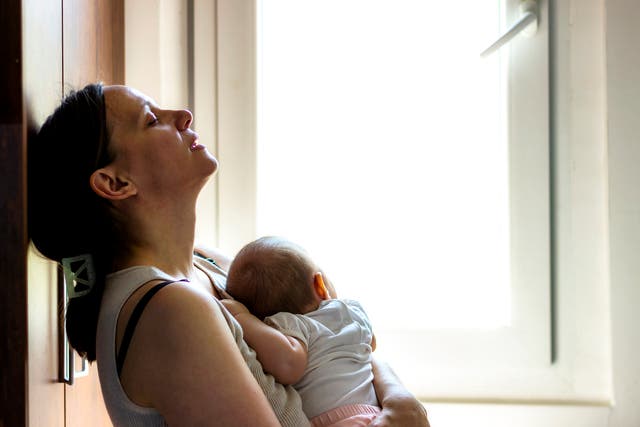A Quick Guide
Ever heard of the term postpartum psychosis? To understand it, consider the following example: Mrs. M is a 30-year-old woman who had a baby girl two weeks ago. Her pregnancy and delivery were planned, full-term, and normal. A few days after the delivery, she complained that she was smelling blood all the time. She also stated that she could hear voices directly from God and had dreams about doomsday which scared her a lot. Due to this, she was warning everyone to do good deeds and absolve their sins by praying and doing religious rituals. Throughout the day, she would constantly walk around the house and did not sleep at night. She was having difficulty taking care of the baby and often thought that her husband was out to harm her. Her condition was worsening every day so much so that she had to be hospitalized immediately. Considering the above symptoms, it is clear that Mrs. M is suffering from postpartum psychosis.
What is postpartum psychosis?
Postpartum psychosis refers to a rare psychological condition that occurs in women 2-4 weeks after the birth of their child. Usually, the postpartum symptoms start immediately. For instance, three days after child delivery. Psychotic symptoms, reduced insight, and judgment can lead to drastic negative consequences, especially with regard to the safety of the mother and child. Due to this, it is integral that it is immediately identified and managed.
Postpartum psychosis symptoms
A person with postpartum psychosis may develop the following symptoms:
- Delusions such as paranoid, grandiose, or bizarre. For example, some women may believe that their baby’s identity has been changed or someone is out to get their baby.
- Hallucinations. For example, auditory hallucination (hearing voices), visual hallucination (seeking things that aren’t there), etc.
- Intense and frequent mood swings
- Confused thinking
- Disorganized behavior
- Declining daily functioning e.g. being unable to take care of herself or do routine chores
- Withdrawing from social relationships
- Speech disturbance. For example, excessive talking, rambling, irrelevant talk
- Thoughts, plans, intentions, or attempts of suicide. For example, some women jump from heights, take overdoes on medication, or attempt self-incineration
- Feeling worthless and hopeless about life in general
Possible causes or risk factors for postpartum psychosis
There are a few factors that increase the likelihood that a woman will develop postpartum psychosis symptoms after childbirth. These include:
- Family history of psychiatric disorders like schizophrenia, bipolar disorder, schizoaffective disorder
- Personal psychiatric history of schizophrenia, bipolar disorder, schizoaffective disorder
- Environmental stressors e.g marital discord
- Excessive sleep deprivation or disturbance in the circadian rhythm cycle
- Hormonal shifts
- History of a past postpartum psychotic episode after the birth of a child
Prognosis of postpartum psychosis
It is likely that women who experience symptoms of psychosis during the first month are more likely to recover quickly from treatment. Compared to them, women who develop symptoms after one month take a long time to recover.
Postpartum psychosis screening
Usually, the primary physician, psychiatrist, or mental health professional conducts screening for postpartum psychosis. They use tools like Edinburgh postnatal depression scale and the mood disorder questionnaire to screen out women at high risk for postpartum psychosis.
Watch: [Maternal Postpartum Psychosis]
Treatment for postpartum psychosis
- It is especially beneficial to get psychoeducation about this illness. Usually, the physician educates the person and family about the symptoms, treatment, and possible outcomes. They may also indicate preventive measures for the future. This is especially crucial since it decides the patient’s decision to continue treatment.
- Medication such as antidepressants and antipsychotics are given initially. The physician frequently assesses the patient’s health and even schedules follow-up visits after discharge from the hospital.
- Electroconvulsive therapy is fast and highly effective in reducing the psychotic symptoms in such women
- Since disturbance in the sleep cycle is a primary contributory factor in postpartum psychotic symptoms, it is advisable that patients get maximum sleep and adjust their overall lifestyle.
- Psychotherapy is also beneficial for women with postpartum psychosis. For example, the mental health professional may assist the woman in developing parenting skills and facilitate bonding with the infant. Other therapeutic options like family-focused therapy, interpersonal psychotherapy, and cognitive behavior therapy can also be useful for dealing with stressors of life. However, this is done after the patient is stable.
We hope the above article was useful for you in understanding postpartum psychosis, its symptoms, risk factors, screening, prognosis, and treatment. To find out more about it, check out the related articles.


